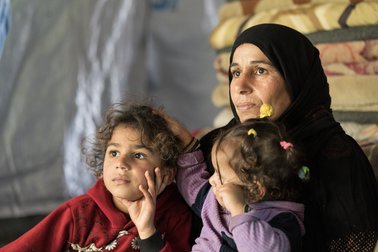Knowledge Hub
-
08/09/2017
Research priority setting for integrated early child development and violence prevention (ECD+) in low and middle income countries: An expert opinion exercise
This study utilized the Child Health and Nutrition Initiative (CHNRI) method for the setting of research priorities in integrated Early Childhood Development and violence prevention programs (ECD+). Through this systematic exercise, the paper provides an important contribution to establishing research agendas in the domain of ECD+.
Read more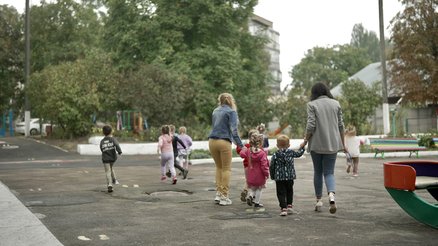
-
09/02/2019
Early Adolescent Skills for Emotions (EASE) intervention for the treatment of psychological distress in adolescents: study protocol for randomised controlled trials in Lebanon and Jordan
There are significant barriers to providing accessible, quality mental health care for young adolescents affected by adversity. In an attempt to overcome this, the World Health Organization (WHO) has developed the Early Adolescent Skills for Emotions (EASE) psychological intervention for young adolescents with internalising problems. EASE is group-based (seven sessions for adolescents, three sessions for their caregivers) and can be delivered by non-specialist providers. This paper outlines the study protocols for two trials of EASE in the Middle East - one in Lebanon and one in Jordan.
Read more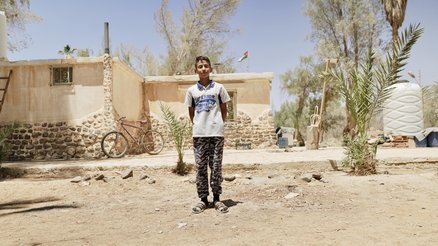
-
11/19/2019
Development of the WHO Caregiver Skills Training Program for Developmental Disorders or Delays
Globally, 52.9 million children under the age of 5 experience a developmental disability, such as sensory impairment, intellectual disability, and autism spectrum disorders. Of these 95% live in low-and-middle-income countries. Most of these children lack access to care. In light of the growing evidence that caregivers can learn skills to support their children’s social communication and adaptive behavior and to reduce their challenging behavior, the World Health Organization developed a novel Caregiver Skills Training Program (CST) for families of children with developmental disorders or delay to address such treatment gap. This report outlines the development process, content, and global field-testing strategy of the WHO CST program.
Read more
-
08/17/2020
Can’t Wait to Learn: A quasi-experimental mixed-methods evaluation of a digital game-based learning programme for out-of-school children in Sudan
Innovations are needed to address the global issue of access to high-quality education, particularly in low- and middle-income countries. This paper shows quasi-experimental evidence that a digital game-based learning programme (‘Can’t Wait to Learn’) led to significantly greater improvements in mathematics competency, Arabic literacy competency, and psychological wellbeing of children aged 7–9 in Sudan, compared to state-provided education for out-of-school children, 6 months after the start of the programme implementation (n = 221).
Read more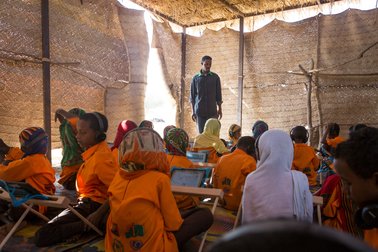
-
02/01/2020
Guided self-help to reduce psychological distress in South Sudanese female refugees in Uganda: a cluster randomised trial
Innovative solutions are required to provide mental health support at scale in low-resource humanitarian contexts. This study aimed to assess the effectiveness of a facilitator-guided, group-based, self-help intervention (Self-Help Plus) to reduce psychological distress in female refugees.
Read more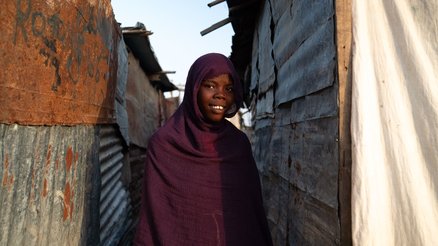
-
06/02/2020
Strengthening parenting in conflict-affected communities: development of the Caregiver Support Intervention
This paper describes the development of the Caregiver Support Intervention (CSI), a nine-session group intervention for conflict-affected parents of children aged 3–13, that aims to strengthen parenting both indirectly, by lowering stress and improving psychosocial wellbeing among parents, and directly, by increasing knowledge and skill related to positive parenting.
Read more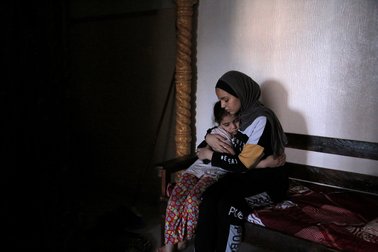
-
03/18/2020
Protocol for a randomized control trial of the caregiver support intervention with Syrian refugees in Lebanon
The Caregiver Support Intervention (CSI) aims to strengthen quality of parenting skills by lowering stress and improving psychosocial wellbeing among refugee caregivers of children aged 3–12 years, while also increasing knowledge and skills related to positive parenting. The CSI is a nine-session psychosocial group intervention delivered by non-specialist providers. It is intended for all adult primary caregivers of children in high-adversity communities, rather than specifically targeting caregivers already showing signs of elevated distress.
Read more